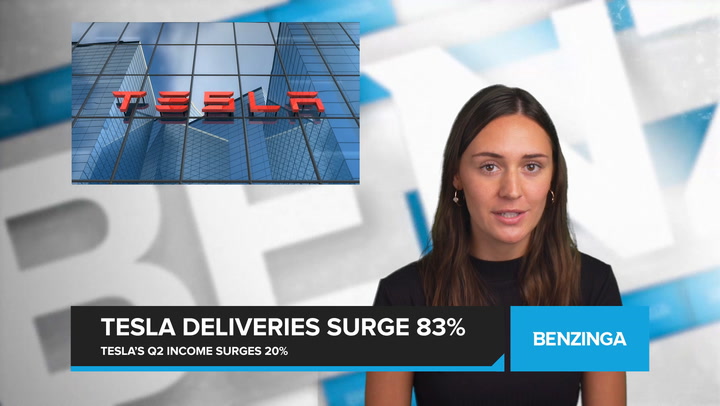
Tesla reported a 20% increase in income in the second quarter, reaching $2.7 billion, surpassing analysts' predictions for a slight profit gain compared to the previous year. Despite an 83% rise in vehicle deliveries from April to June, revenue only grew by 47% to $24.9 billion, still beating analysts' expectations. The automotive gross margin, excluding regulatory credits, narrowed to 18%, the lowest since 2017, as Tesla continues efforts to cut costs internally and optimize production. The company has already reduced starting prices in the U.S. by 14% to 28% depending on the model. Musk reiterated that he is focused on growth rather than profitability, envisioning Tesla's future profitability from its software business, including driverless car technology. Tesla plans to expand production capacity significantly in the coming years, targeting 20 million vehicles annually by 2030, and has started building preproduction versions of its Cybertruck in Texas.









